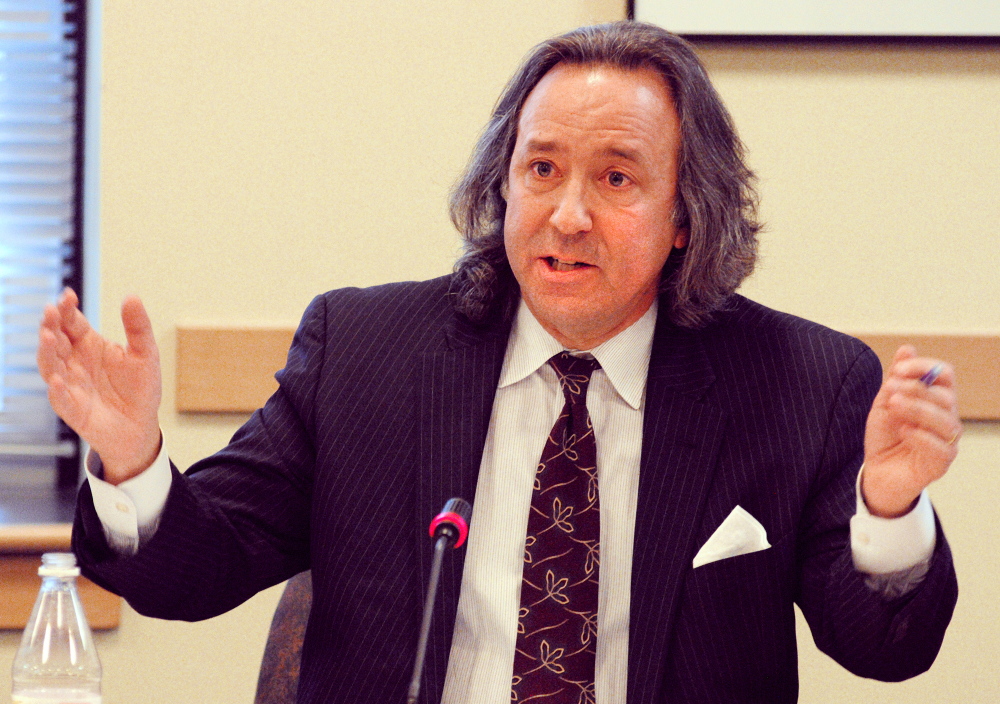The LePage administration has released new policies that exclude some asylum seekers from receiving General Assistance, reigniting the debate over an issue that immigrant advocacy groups insist was settled by the Legislature last year.
In rules completed last week, the Maine Department of Health and Human Services clarified that only immigrants who meet a federal law’s definition of “lawfully present” or who have applied for asylum should be eligible for General Assistance. Municipalities that repeatedly provide assistance to immigrants deemed ineligible by the DHHS could lose all of their state reimbursements for General Assistance. The state would not penalize a municipality for giving General Assistance to ineligible immigrants if the municipality did not seek state reimbursement for that spending.
Critics already are threatening legal action because the DHHS rules say that asylum seekers who have yet to file federal applications would be ineligible for assistance. That violates the intention of the law passed by the Legislature last year, according to immigration advocates and one lawmaker who was involved in crafting the law.
“It will make people homeless and that will have an impact on shelters,” said Alain Nahimana, coordinator of the Maine Immigrants’ Rights Coalition. “We are back in the same situation as one year ago, where people the law was intending to help are being denied assistance.”
After months of debate, lawmakers passed a bill last year that allows asylum-seeking immigrants to receive General Assistance for as long as two years. Gov. Paul LePage had fought to cut off state General Assistance reimbursements to municipalities that provide welfare to the growing number of immigrants seeking asylum in Maine from war-torn or politically unstable counties in central Africa.
The bill, which became law after LePage didn’t veto it in time, defined a person eligible for General Assistance as anyone “who is lawfully present in the United States or who is pursuing a lawful process to apply for immigration relief.”
DIFFERENT INTERPRETATION OF LAW
In a statement, the DHHS said it began rule-making “with the sole intent of clarifying the law such that it could be effectively administered on behalf of Maine taxpayers.”
“The Legislature clearly intended to give General Assistance to some number of non-citizens who were not eligible before, but they also didn’t pass a law making everyone in the world eligible for welfare, so therefore the rule must define precisely who is and who is not eligible in accordance with the law,” the department said.
But critics contend that the DHHS is wrongly excluding immigrants who are preparing their asylum applications but have yet to file them with federal immigration officials. Federal law allows non-citizens to file for asylum within one year of entering the United States, regardless of how they arrived in the country. The vast majority of asylum seekers in Maine arrive in the U.S. on student, work or visitation visas that expire within six months, meaning they have six months to complete the long and complicated asylum application before facing deportation.
Federal law also prohibits asylum seekers from receiving legal work permits for at least six months after they apply. And many asylum seekers wait years for interviews with immigration officials because of a growing national backlog.
COURT CHALLENGE CONSIDERED
Robyn Merrill of Maine Equal Justice Partners, a nonprofit that provides legal help and advocacy to immigrants, said her organization and others are “taking steps and giving serious consideration” to challenging the DHHS rules in Maine courts. She argued that immigrants who are preparing their application or who are working with some of the pro bono legal teams that help with asylum applications are clearly “pursuing a lawful process to apply for immigration relief.”
“The intent was to provide this bridge of temporary support to people, and this (rule) very much flies in the face of that,” said Merrill, who was very active in the legislative debate over the bill. “It’s unfortunate that so much time and energy has gone into attempting to deny benefits … to people who we should be welcoming to this state and who have so much to offer.”
The DHHS said it stands behind the rule.
“Welfare industry lobbyists like (Maine Equal Justice Partners) want to define ‘pursuing a lawful process’ as literally anyone who happens to be in Maine, regardless of their legal status or whether or not they have filed required asylum applications with the federal government,” the department said in a statement. “For example, if an immigrant came to America on a student visa, allowed that visa to expire, and still had not applied for asylum, MEJP wants them to be considered an ‘asylum seeker’ anyway and provide them welfare. While legislators may have chosen to provide benefits to immigrant non-citizens who are here with lawful status or taking formal steps to gain lawful status, the law clearly does not require General Assistance to be granted to immigrant non-citizens with no legal status or no application for immigration relief.”
The state Attorney General’s Office reviewed and approved the new rules after suggesting several changes, the DHHS said.
Rep. Drew Gattine, a Democrat from Westbrook who helped craft the bill as co-chair of the Health and Human Services Committee, also disagreed with the department’s reading of the law. The Legislature intentionally left the wording broad to capture non-citizens who are working on asylum applications but have yet to file them.
“I think the department chose to take the most narrow interpretation that they could get away with, and that will leave some people out in the cold,” Gattine said.
DHHS TO PENALIZE REPEAT VIOLATORS
The policy could have significant policy implications for communities that don’t follow the rule.
DHHS spokesman John Martins said Tuesday that municipalities that repeatedly violate the state’s rules on would-be asylum seekers would be required to put together a “corrective action plan to come into compliance.”
“If the corrective action was not completed and non-compliance continued, all reimbursement would be withheld until the municipality was in compliance, in accordance with GA laws and rules,” Martins said.
Anticipating that the DHHS would adopt a narrow interpretation of the law, Portland city officials set aside $250,000 to provide assistance for 90 to 100 non-citizens expected to be deemed ineligible for the state General Assistance program.
Portland has received upward of $5 million in General Assistance reimbursements from the state in recent years. DHHS spokeswoman Samantha Edwards said Wednesday that Portland would not be penalized under the new rule because it is using its own money and not asking for state reimbursement.
Portland’s spokeswoman Jessica Grondin said: “Our legal counsel is still reviewing the rule and its implications on our GA program.”
Because incorrect information was provided to the newspaper by a state official, this story has been corrected to accurately describe the new state rule on General Assistance eligibility for immigrants who seek asylum. Under the rule, the state would not penalize a municipality for giving General Assistance to ineligible immigrants if the municipality did not seek state reimbursement for that spending.
Send questions/comments to the editors.




